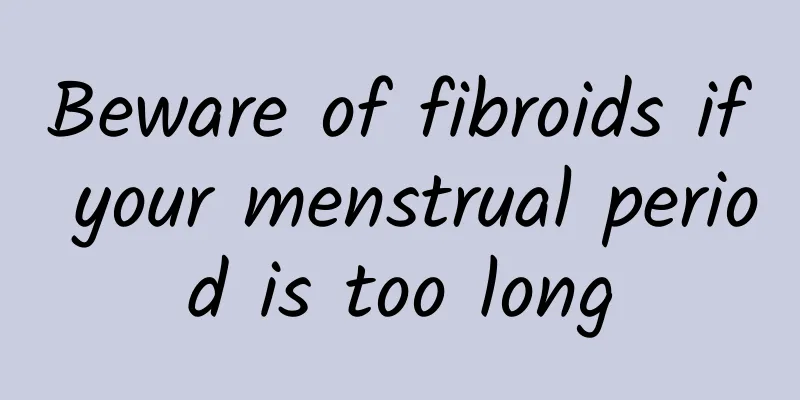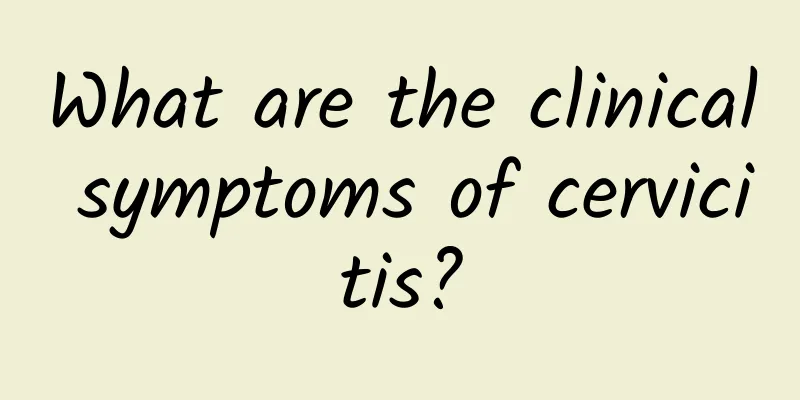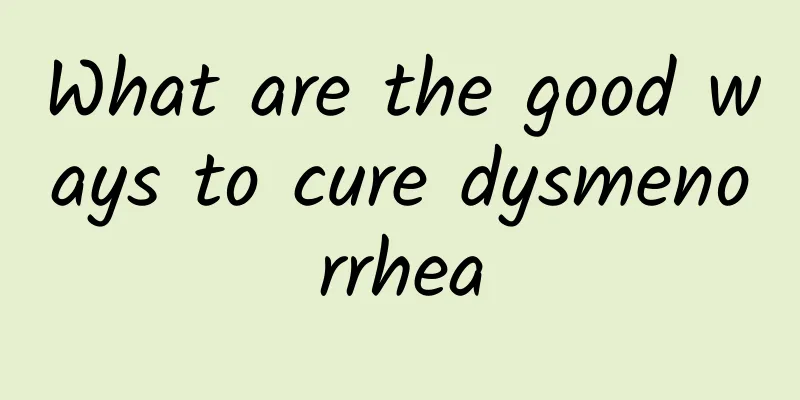Beware of fibroids if your menstrual period is too long

|
Do symptoms of uterine fibroids include prolonged menstrual periods? Uterine fibroids have almost become a common killer disease among women. However, patients with uterine fibroids often do not know the symptoms of uterine fibroids, which leads to worsening of the disease. Therefore, experts remind people to be careful of fibroids if the menstrual period is too long. Most women with uterine fibroids may not know that they have fibroids in their uterus. Many people wait until they have a physical examination after pregnancy or when the fibroids grow large enough to be felt on the belly before going to the hospital for treatment. Some patients will experience symptoms such as excessive menstruation and dysmenorrhea. Uterine fibroids can cause different symptoms depending on the number, location, size, and degeneration of the uterus, but most patients have no symptoms. Most women with uterine fibroids may not know that they have fibroids in their uterus. Many people wait until they have a physical examination after pregnancy or the fibroids grow to a size that can be felt from the belly before going to the hospital for treatment. Some patients may experience symptoms of uterine fibroids such as menorrhagia and dysmenorrhea. If the fibroids are too large and compress the bladder and ureters, it may cause frequent urination and urination disorders, or hydronephrosis and compress the rectum, which may cause difficulty in defecation; uterine fibroids may also cause infertility. There are many ways to treat uterine fibroids. Women who have had sex are advised to have a gynecological examination every six months or a year. Women who learn that they have uterine fibroids should avoid two tendencies. One is to become nervous, unable to sleep or eat, seek medical treatment everywhere, and believe in folk remedies. The other is to be careless, refuse to take medication, and end up with severe anemia, inability to work, and even the rapid enlargement of uterine fibroids and malignant transformation of fibroids without timely diagnosis and treatment. After the menstrual period, men and women often endure for several days. After the menstrual period, it is often a period of physiological needs when the frequency of sexual activity increases. At this time, women often have a sense of liberation and are very willing to make up for the lost sex. Moreover, this time is also a time when it is not easy to conceive. In this case, it is easy for both parties to reach orgasm, which is a better time. The above is an introduction to the symptoms of uterine fibroids, I hope it can help you. At the same time, it should be noted that if women's menstruation is not completely over or they often have a little more menstruation after menstruation, they should pay special attention to prevent infection. At this time, the uterus has just been repaired and also needs to be cared for. Do not move too much or use too much force. Uterine fibroids http://www..com.cn/fuke/zgjl/ |
<<: A hard lower abdomen may alert you to uterine fibroids
>>: What are the main symptoms of ovarian cysts
Recommend
Has the wet market become a loophole in epidemic prevention? Nutritionist: 3 tips for buying and preserving food, buy fast and stop less often to buy enough
The largest gatherings of people during the epide...
What are the causes of vulvar leukoplakia?
What are the causes of vulvar leukoplakia? How mu...
How to treat pelvic inflammatory disease
The treatment of pelvic inflammatory disease gene...
She became as thin as a fairy and hasn’t eaten this for 20 years! Only eat red rice, brown rice... Weight loss doctor: Be careful of these landmines
Hong Kong star Sammi Cheng recently shared her we...
What to do about premature ovarian failure
What to do if you have premature ovarian failure?...
Can an alkaline diet help you lose weight? 7 ways to lose weight, number 1 is…
Every move of stars and celebrities’ weight loss ...
What are the causes of uterine fibroids? Are uterine fibroids caused by genetics?
I believe that many people want to know the cause...
Will taking emergency contraceptive pills cause ectopic pregnancy?
Will taking emergency contraceptive pills cause e...
A 112kg man suffers from metabolic syndrome and severe fatty liver! Lose weight from both inside and outside, and enjoy slimness in a healthy way
A 35-year-old man works in the technology industr...
If you want a Christmas dinner without the burden, the Mediterranean diet is the first choice! Olive oil and vinegar: two soul-smart dishes
Christmas is approaching, and many people are thi...
Hidden worries! Survey: Yogurt = 11 sugar cubes
Health food is not healthy! Currently, there are ...
What is the effect of pelvic inflammatory enema? Clearing away heat and detoxifying
The main purpose of pelvic inflammatory disease e...
High-risk groups for ectopic pregnancy: 6 types of women need special attention, and the last one must be seen by your husband!
Ectopic pregnancy, this scary-sounding medical te...
How much does intrauterine adhesion surgery cost?
How much is the cost of treating intrauterine adh...
What are some good folk remedies for pelvic peritonitis?
Pelvic peritonitis often troubles people. If you ...









